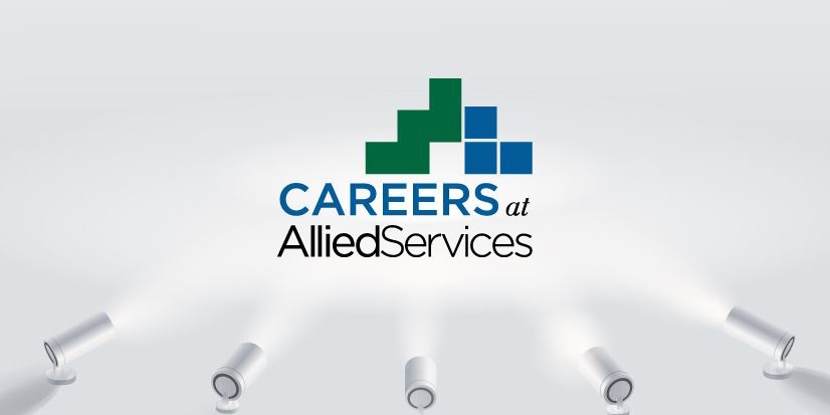Hospice Continuous Care: A Little Known Benefit With Huge Rewards
- Category: Hospice & Palliative Care
- Posted On:
- Written By: Allied Services Integrated Health

Educating the community about the benefits of hospice care is an ongoing but vital task. As a society, we associate hospice care with death, loss, and grief, and overlook the emotional and practical support families receive during and beyond end-of-life care. Sometimes, it is this fear of the unknown that stands in the way of receiving care. Families reach out for support only when their loved one’s care becomes unmanageable, or their symptoms escalate. At this point, they are scared and confused. As hospice professionals, we hear families lamenting, “If I had known what hospice was, we would have done this so much sooner.” Indeed, according to the Journal of Pain and Symptom Management, nearly half of hospice patients receive care for a week or less, when the benefits are available for the last 6 months of life.
One of the little known services offered through hospice is continuous care, also known as crisis care. It is one of the four levels of hospice care included in the Medicare Hospice Benefit and required by Medicare Hospice regulations. The National Hospice and Palliative Care Organization explain continuous care as “predominately nursing care, covered for at least 8 hours, and up to 24 hours... The purpose of continuous home care is to achieve palliation and management of acute medical symptoms. Continuous home care is only furnished during brief periods of crisis and only as necessary to maintain the terminally ill patient at home.”
Why is this level of care so important? Around the clock nursing and hospice care is available on an inpatient basis. However, we are seeing a trend towards patients wishing to remain at home for the remainder of the days. According to a recent Kaiser Family Foundation poll, 7 in 10 Americans say they would prefer to die at home and an article in The New England Journal of Medicine published in December 2019 reports that home deaths increased from 23.8% in 2003 to 30.7% in 2017. Therefore, continuous care fulfills an important role in helping families respect their loved one’s wishes.
The benefits of continuous care are twofold. First, it allows symptomatic patients to achieve their goal of comfortably living out the remainder of their days, weeks, or months at home. Second, it provides families with access to a team of dedicated individuals who specialize solely in this level of care. The hospice team educates the family and helps them to understand the process and what their loved one is experiencing. Also, this intensive level of support gives caregivers the ability to step back and be exactly what they are in the patient's life: a spouse, a child, a grandchild, niece, or nephew. It is the gift of being present and informed but with the burden for hands-on care lifted.
Your hospice team will identify when continuous care is needed. For example, if a patient is experiencing increased pain without relief from the current medication routine, continuous care may be appropriate. Talk to your hospice team about this level of care. It may be exactly what your family needs.
Laura Marion, RN, BSN, is Assistant Vice President of Allied Services Hospice and Palliative Care. Learn more about Hospice Care at Allied Services here or call 570-341-4320.



